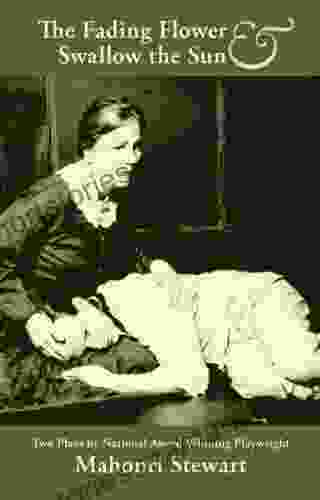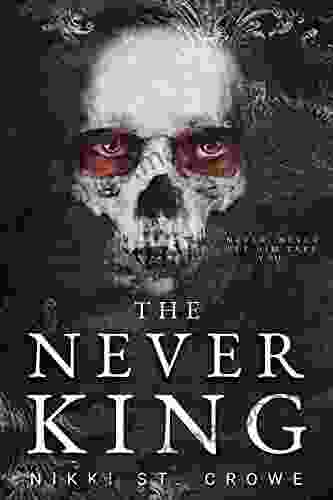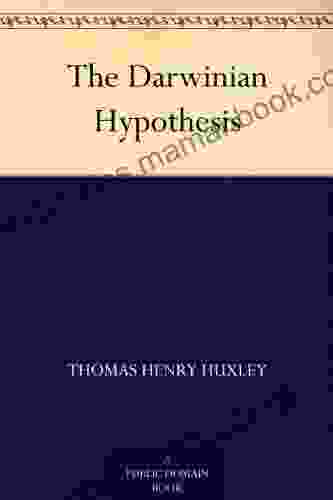The Darwinian Hypothesis: A Comprehensive Analysis by Thomas Henry Huxley

4.5 out of 5
| Language | : | English |
| File size | : | 91 KB |
| Text-to-Speech | : | Enabled |
| Screen Reader | : | Supported |
| Enhanced typesetting | : | Enabled |
| Word Wise | : | Enabled |
| Print length | : | 55 pages |
| Lending | : | Enabled |
The Darwinian Hypothesis, proposed by Charles Darwin in 1859, marked a pivotal moment in the history of science. It revolutionized our understanding of the natural world, challenging traditional beliefs about the origins of life and the evolution of species. Thomas Henry Huxley, a renowned scientist and advocate for Darwin's theory, played a significant role in disseminating and defending the Darwinian Hypothesis, which he considered "the most important scientific discovery of the century."
In this comprehensive article, we delve into the key concepts of the Darwinian Hypothesis, as expounded by Thomas Henry Huxley, and examine its implications and impact on the scientific revolution.
Key Concepts of the Darwinian Hypothesis
The Darwinian Hypothesis is primarily based on the principles of natural selection and survival of the fittest. According to Darwin, organisms with advantageous traits have a higher chance of survival and reproduction, passing on their favorable characteristics to future generations. This process, known as natural selection, gradually leads to the evolution of species over time.
1. Variation and Inheritance: Darwin argued that individuals within a species exhibit significant variations, which are heritable and can be passed on from parents to offspring. These variations can be advantageous, neutral, or detrimental in a given environment.
2. Natural Selection: The environment acts as a selective force, favoring individuals with beneficial variations. Organisms with traits that enhance their survival and reproductive success have a higher chance of passing on their genes, while those with less advantageous characteristics are more likely to be eliminated from the population.
3. Survival of the Fittest: Through the process of natural selection, individuals with the most beneficial traits are more likely to survive and reproduce, resulting in the accumulation of favorable variations within the population. Over time, this leads to the evolution of species that are better adapted to their environment.
Implications of the Darwinian Hypothesis
1. Common Descent: The Darwinian Hypothesis implies that all living organisms share a common ancestor. This concept challenged the prevailing belief in the separate creation of different species and provided a unifying framework for understanding the diversity of life on Earth.
2. Evolution of Humans: The hypothesis extended the principles of evolution to humans, suggesting that we are descended from a common ancestor with other primates. This revolutionary idea challenged the traditional religious narratives of human origins and sparked significant debate.
3. Naturalism: The Darwinian Hypothesis promoted a naturalistic philosophy, emphasizing the operation of natural laws without the intervention of supernatural forces. It challenged the widespread belief in divine creation and fueled the development of a more scientific worldview.
Thomas Henry Huxley's Role in Promoting the Darwinian Hypothesis
Thomas Henry Huxley emerged as a staunch advocate for Darwin's evolutionary theory. He coined the term "Darwinism" and engaged in numerous debates and lectures to popularize the hypothesis among the scientific community and the general public.
1. Public Lectures and Debates: Huxley played a crucial role in introducing the Darwinian Hypothesis to the wider public through his engaging lectures and debates. He defended Darwin's ideas against criticism from religious and scientific opponents, arguing that evolution was a well-supported scientific theory.
2. Scientific Support: Huxley provided empirical evidence in support of Darwin's theory. He presented comparative anatomical studies, paleontological findings, and geographical distribution patterns that supported the evolutionary descent of species.
3. "Bulldog of Darwinism": Huxley's combative and persuasive nature earned him the nickname "Bulldog of Darwinism." He fiercely defended the theory, engaging in heated debates and challenging opponents with logical arguments and scientific evidence.
Impact of the Darwinian Hypothesis on the Scientific Revolution
The Darwinian Hypothesis had a profound impact on the scientific revolution, challenging traditional beliefs and paving the way for advancements in biology, anthropology, and other fields.
1. Evolutionary Biology: The hypothesis revolutionized the field of biology, providing a scientific explanation for the evolution of species and the diversity of life. It laid the foundation for the development of genetics, molecular biology, and modern evolutionary theory.
2. Human Evolution: The application of the Darwinian Hypothesis to human evolution challenged religious and cultural narratives about our origins. It spurred research on human fossils, genetics, and comparative anatomy, leading to a better understanding of our place in the natural world.
3. Social and Cultural Implications: The Darwinian Hypothesis had broader implications beyond the scientific sphere. It influenced social and cultural thought, contributing to the rise of secularism, the decline of religious dogma, and the exploration of new ideas about human nature and society.
The Darwinian Hypothesis, as expounded by Thomas Henry Huxley, provided a transformative framework for understanding the natural world. Its central principles of natural selection and survival of the fittest have revolutionized biology, anthropology, and other fields, shaping our understanding of life's origins and evolution. Huxley's advocacy and empirical support for the hypothesis played a crucial role in its acceptance and widespread influence. The Darwinian Hypothesis remains a cornerstone of modern science, continuing to inspire scientific inquiry and shape our understanding of the universe we inhabit.
4.5 out of 5
| Language | : | English |
| File size | : | 91 KB |
| Text-to-Speech | : | Enabled |
| Screen Reader | : | Supported |
| Enhanced typesetting | : | Enabled |
| Word Wise | : | Enabled |
| Print length | : | 55 pages |
| Lending | : | Enabled |
Do you want to contribute by writing guest posts on this blog?
Please contact us and send us a resume of previous articles that you have written.
 Top Book
Top Book Novel
Novel Fiction
Fiction Nonfiction
Nonfiction Literature
Literature Paperback
Paperback Hardcover
Hardcover E-book
E-book Audiobook
Audiobook Bestseller
Bestseller Classic
Classic Mystery
Mystery Thriller
Thriller Romance
Romance Fantasy
Fantasy Science Fiction
Science Fiction Biography
Biography Memoir
Memoir Autobiography
Autobiography Poetry
Poetry Drama
Drama Historical Fiction
Historical Fiction Self-help
Self-help Young Adult
Young Adult Childrens Books
Childrens Books Graphic Novel
Graphic Novel Anthology
Anthology Series
Series Encyclopedia
Encyclopedia Reference
Reference Guidebook
Guidebook Textbook
Textbook Workbook
Workbook Journal
Journal Diary
Diary Manuscript
Manuscript Folio
Folio Pulp Fiction
Pulp Fiction Short Stories
Short Stories Fairy Tales
Fairy Tales Fables
Fables Mythology
Mythology Philosophy
Philosophy Religion
Religion Spirituality
Spirituality Essays
Essays Critique
Critique Commentary
Commentary Glossary
Glossary Bibliography
Bibliography Index
Index Table of Contents
Table of Contents Preface
Preface Introduction
Introduction Foreword
Foreword Afterword
Afterword Appendices
Appendices Annotations
Annotations Footnotes
Footnotes Epilogue
Epilogue Prologue
Prologue Laurie Kutchins
Laurie Kutchins Alexander Vindman
Alexander Vindman Alexis Michalik
Alexis Michalik Selma Blair
Selma Blair Sylvain Neuvel
Sylvain Neuvel Heng Ou
Heng Ou James C Hogan
James C Hogan Keith Spence
Keith Spence Ernest Christo
Ernest Christo G K Chesterton
G K Chesterton Jessica Hall
Jessica Hall Ed Lambert
Ed Lambert Norman Maclean
Norman Maclean Leigh James
Leigh James Julia Strekalova
Julia Strekalova Merrill Joan Gerber
Merrill Joan Gerber Jennifer Case
Jennifer Case Michelle Tam
Michelle Tam Christa Wick
Christa Wick W B Yeats
W B Yeats
Light bulbAdvertise smarter! Our strategic ad space ensures maximum exposure. Reserve your spot today!
 Ivan TurgenevFollow ·10.4k
Ivan TurgenevFollow ·10.4k Ezekiel CoxFollow ·16.9k
Ezekiel CoxFollow ·16.9k Jeremy MitchellFollow ·4.2k
Jeremy MitchellFollow ·4.2k Luke BlairFollow ·19.3k
Luke BlairFollow ·19.3k Rudyard KiplingFollow ·4.6k
Rudyard KiplingFollow ·4.6k Walter SimmonsFollow ·12k
Walter SimmonsFollow ·12k Charlie ScottFollow ·7.3k
Charlie ScottFollow ·7.3k Yasunari KawabataFollow ·8.8k
Yasunari KawabataFollow ·8.8k

 Bob Cooper
Bob CooperThe Fading Flower and Swallowing the Sun: Unveiling the...
"The Fading Flower and...

 Jesus Mitchell
Jesus MitchellLa Danza by Rossini: A Captivating Work for Flute Quartet
La Danza is a captivating composition for...

 Ivan Turgenev
Ivan TurgenevThe Never King: Vicious Lost Boys - A Dark and Twisted...
In the realm of Neverland, where shadows dance...

 Herb Simmons
Herb SimmonsThe Stone of Inheritance: Unraveling the Mysteries of a...
A Legacy of Enigmas In the annals of history,...
4.5 out of 5
| Language | : | English |
| File size | : | 91 KB |
| Text-to-Speech | : | Enabled |
| Screen Reader | : | Supported |
| Enhanced typesetting | : | Enabled |
| Word Wise | : | Enabled |
| Print length | : | 55 pages |
| Lending | : | Enabled |
















